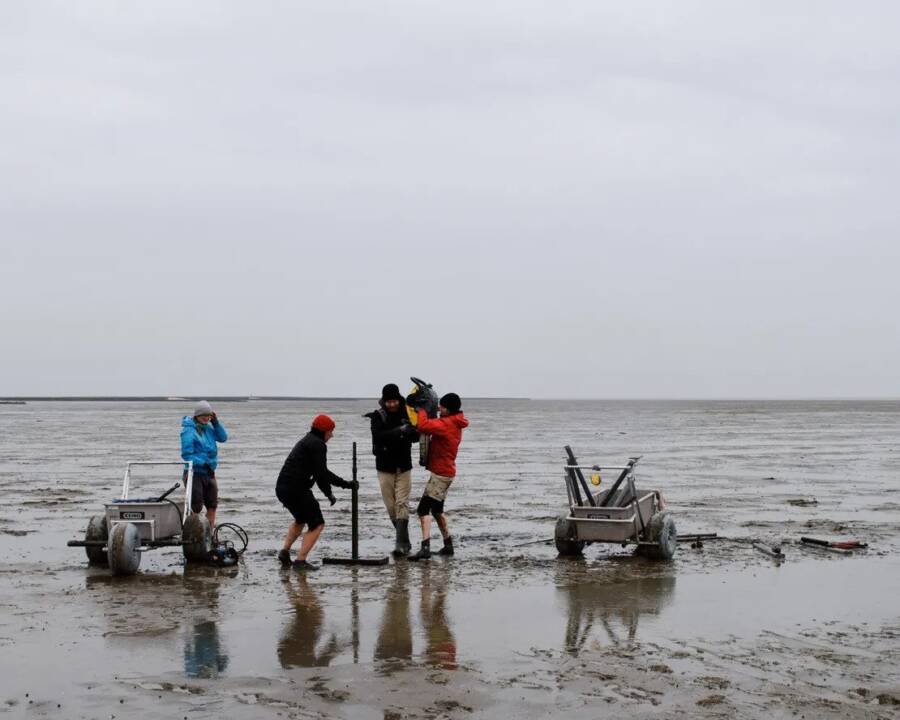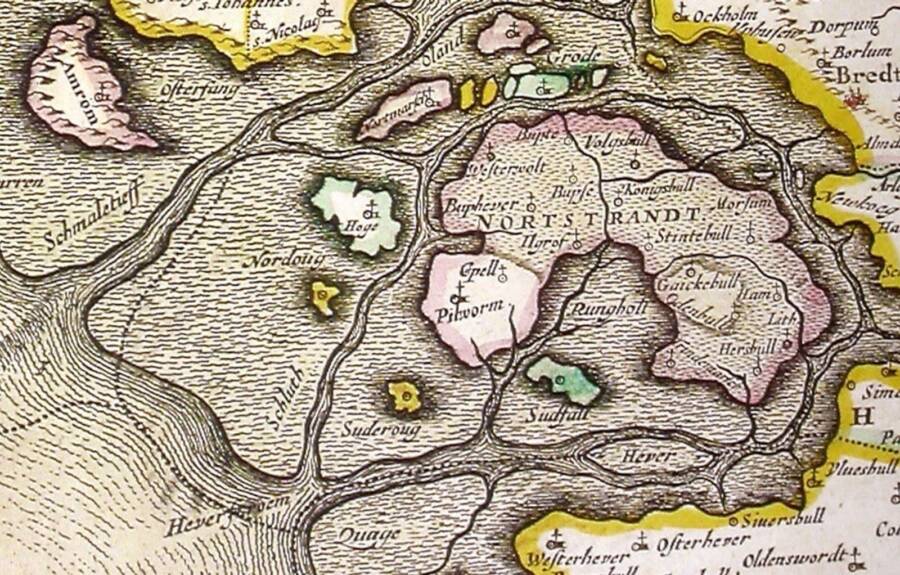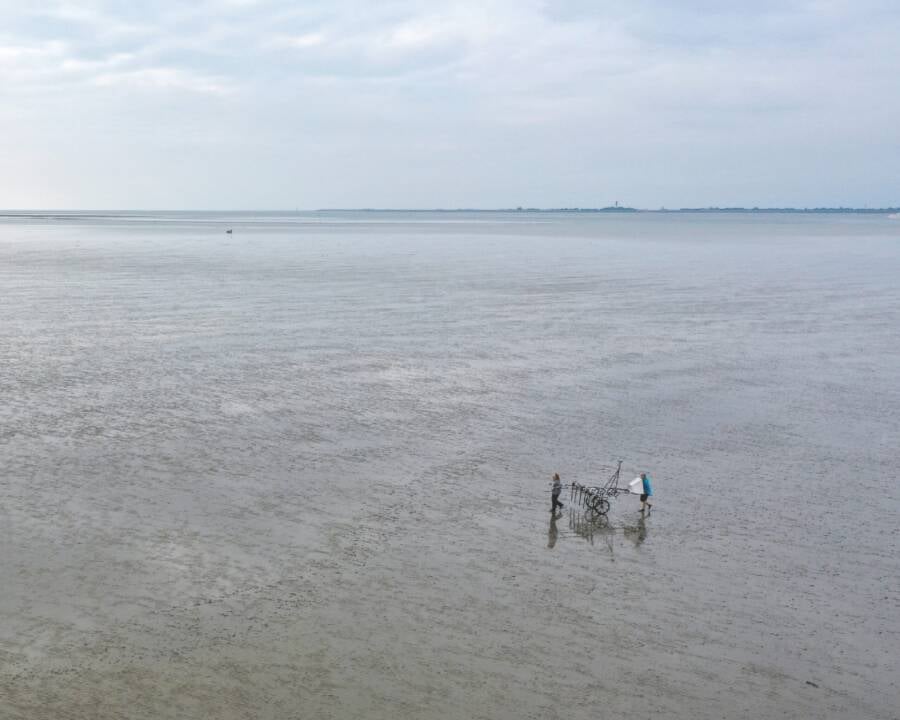Legend holds that the lost city of Rungholt was swallowed by the ocean in 1362 as punishment for its inhabitants' sins.

Justus LemmResearchers believe they may have identified the lost medieval town of Rungholt.
According to legend, the Germanic town of Rungholt was swallowed by the ocean in 1362 after a priest prayed to God to punish its sinful inhabitants. Now, researchers believe that they’ve found trace remains of the doomed town, including a harbor, a drainage system, and the foundation of a church among mudflats in the Wadden Sea.
Researchers from Kiel University, Johannes Gutenberg University Mainz, the Center for Baltic and Scandinavian Archaeology, and the State Archaeology Department Schleswig-Holstein used “various geophysical methods such as magnetic gradiometry, electromagnetic induction, and seismics” to detect the lost town under mudflats near Hallig Südfall, a small island in the Wadden Sea off the coast of Germany, according to a university press release.
Over a search area of more than ten square kilometers, the archaeologists found “systemic drainage systems,” a “sea dike,” two small churches, and a large, main church. The central church, believed to have been 40 meters by 15 meters large, struck the archaeologists as an especially exciting find.
“The find thus joins the ranks of the large churches of North Frisia,” archaeologist Bente Sven Majchczack of Kiel University stated. Ruth Blankenfeldt of the Center for Baltic and Scandinavian Archaeology seconded this, saying: “The special feature of the find lies in the significance of the church as the center of a settlement structure, which in its size must be interpreted as a parish with superordinate function.”
These finds offer compelling evidence of the drowned town of Rungholt, whose very existence has been debated among historians. According to National Geographic, the discovery not only confirms that Rungholt existed, but suggests it prospered as one of the more important towns in Edomsharde, an administrative district in North Friesland that existed until 1634.

Public DomainA map of of North Friesland from the 17th century which marks Rungholt, though the city’s existence has been debated since it allegedly disappeared.
As the story goes, Rungholt was once a powerful, prosperous medieval town, flush with taverns, brothels, and churches. Its inhabitants began to lead sinful lives, flaunting their wealth, getting drunk, and showing no respect toward religion.
One night at the end of 1361, a group of drunk young men allegedly tried to force a priest to give the last sacrament to a pig at an inn in Rungholt. The priest, shaken and infuriated, went to a church in town the next day, where he prayed that the young men would be punished. He then left town — and Rungholt was swallowed by the sea soon afterward in January 1362.
In fact, a massive storm did batter Europe in January 1362, impacting Germany, the Netherlands, Denmark, and the United Kingdom. The storm caused such damage to coastal towns and cities in these places that it was dubbed “the great drowning of men.”
Now, it appears that one of those drowned towns has been found. But researchers investigating the possible site of Rungholt are battling the clock.

Dirk Bienen-ScholtArchaeologists examining mudflats in the Wadden Sea, which appear to be the former site of the lost city of Rungholt.
“The medieval settlement remains are already heavily eroded and often only detectable as negative imprints,” Hanna Hadler of the Institute of Geography at Mainz University explained. “So we urgently need to intensify research.”
Hopefully, the researchers can continue their survey and learn more about Rungholt before the sea — which tried to wipe Rungholt off the map in 1362 — finally swallows the doomed town for good.
After reading about how the lost city of Rungholt has been mapped by archaeologists in the Wadden Sea, learn about Zealandia, the lost continent that sank beneath New Zealand. Or, see how underwater archaeologists uncovered a 2,200-year-old shipwreck in the sunken Egyptian city of Thônis-Heracleion.





